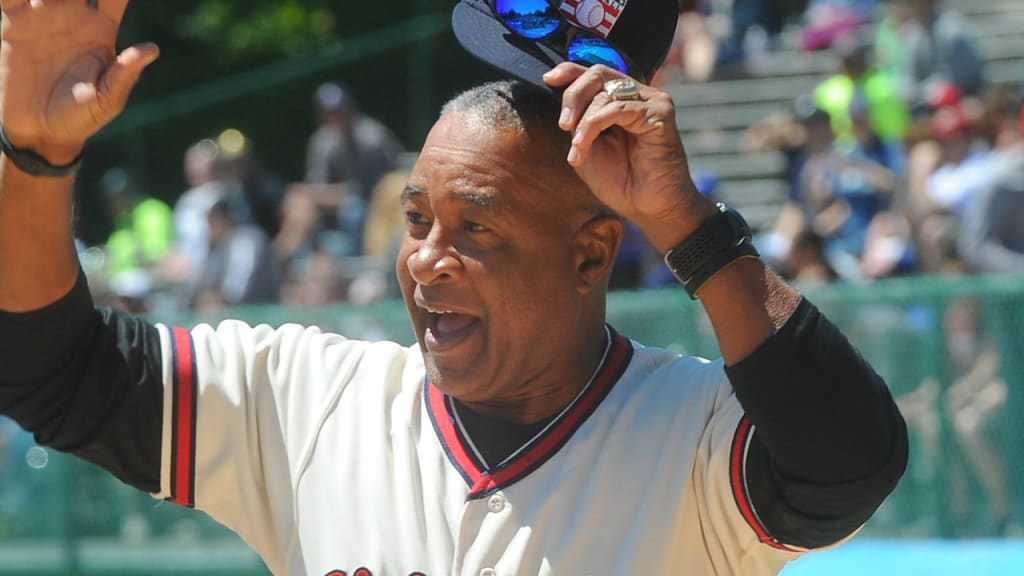
COOPERSTOWN, N.Y. -- After two years of no electees by separate Veterans Committees, the National Baseball Hall of Fame board of directors moved on Saturday to change the process.
The emphasis will now be on players, managers, umpires and executives whose careers began in 1988 moving forward, with active executives eligible at age 70 no matter their current positions in Major League Baseball or the 30 clubs. Previously, executives had to be retired and at least 65 to be considered.
That committee, entitled Today's Game, will now meet twice in five years, beginning later this year.
"This is not unusual. It's about staying relevant," Hall president Jeff Idelson said on Saturday. "There's now stronger emphasis on players who have recently fallen off the Baseball Writers' Association of America ballots. No group of candidates is being left out. We've always left the door open."
:: Complete Hall of Fame coverage ::
Two years ago, the board cut eligibility of players on the BBWAA ballot from 15 years to 10. The waiting period for players going on what was then the "Expansion Era" ballot was one year. Now it is none.
The Expansion Era has been split into two committees. The other is called the "Modern Era," aimed at players, managers, executives and umpires whose careers had an impact from 1970-87. The "Golden Days" committee encompasses the same group from '50-69. Like the Today's Game committee, both will meet twice in five years.
The "Early Baseball" Committee, judging those who played, ruled or governed from 1871-1949 will now meet every 10 years.
The schedule released Saturday by the Hall has the Today's Game committee meeting this year and in 2018, the Modern Days committee in '17 and '19, and both the Golden Days and Early Baseball committees meeting in '20. The Early Days committee is not slated to meet again after that until '30.
By then, the process can certainly be changed.
The three-committee format, instituted in 2011, lasted just two cycles. During that time, only two players were elected: Ron Santo and Deacon White, a 19th-century catcher who played without the benefit of equipment.
The Expansion Era committee was undoubtedly the most prolific, first electing general manager Pat Gillick, and two years ago electing managers Joe Torre, Tony La Russa and Bobby Cox. No player has been elected by that committee.
In late 2014, the Golden Era Committee caused a stir when players Dick Allen and Tony Oliva missed by one vote and Jim Kaat missed by two.
There are 16 members of each committee, so a candidate needs 12 of those votes, or 75 percent, to be elected. The latter is the threshold for all candidates trying to ascend to the Hall.
Ten people are placed on the ballot by a separate nominating committee, and each of the 16-member voting block can vote for a maximum of five. That means there are only 80 votes to divvy around, and the more stocked the ballot is with good candidates, the less chance there is of anyone being elected.
None of those rules have changed in the new Veterans Committee format, Idelson said.
Idelson also said the absence of any electees over the past two years by the Golden Era and Pre-Integration committees was not the primary reason for the change.
"No, it wasn't reactive to the last couple of times, but it was more a look at when you start studying the numbers, we were due for a change," Idelson said. "I guess analytics have affected the Hall of Fame, too. You start looking at the fact that pre-1950, the number of electees as compared to post-1950 was massively different.
"It's because these guys have had so many chances for so many years. With expansion in the game from 16 to 30 teams, there are so many more players now. But when you look at the numbers, there are twice as many Hall of Famers elected before 1950 as players after 1950."
In other news, the Hall added Hall of Fame shortstop Ozzie Smith to its board and also made some tweaks in the election for the Ford C. Frick Award, given annually to an announcer with a meritorious career in baseball broadcasting.
Primarily, the selection ballot will now go from 10 to eight, with the three positions selected by the general populace via Facebook now determined by a committee of historians. Like the Veterans Committees, a new election cycle was established.
Announcers from current Major League markets will be considered for 2017, National Voices for '18 and pioneers of broadcasting in '19.
About Smith's election by the board, Idelson said: "He's a great addition. When you think about the type of people you want on our board, you want people who are invested in the institution, and there's nobody more invested in this institution than Ozzie Smith. He's here for every turn and every Hall of Fame Classic. And starting with his induction year [2002] ... it's been non-stop."